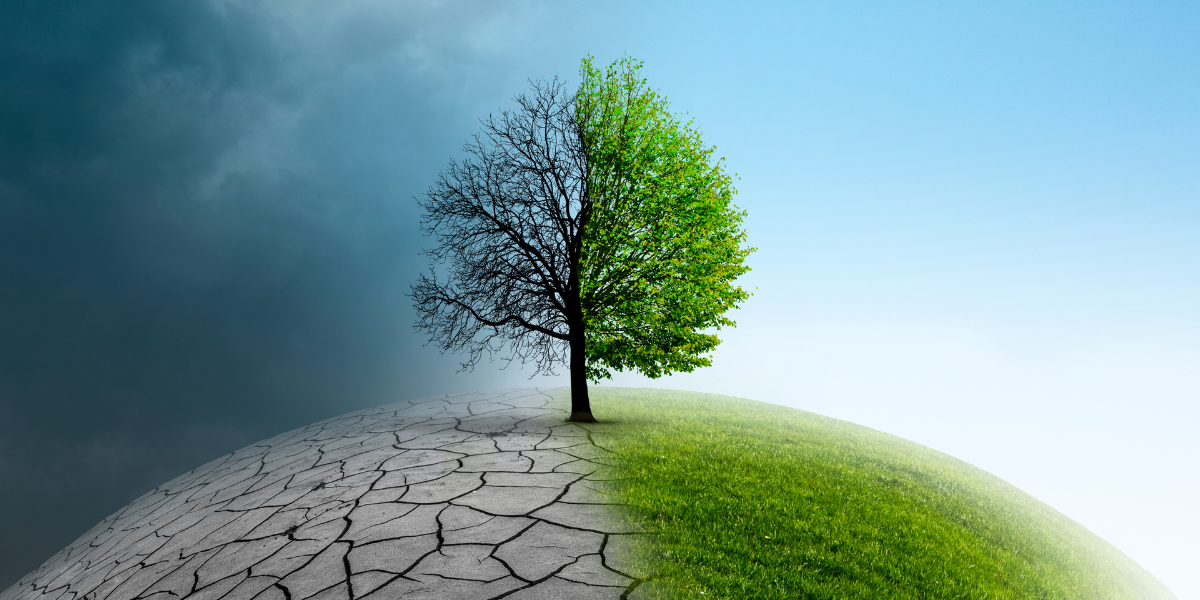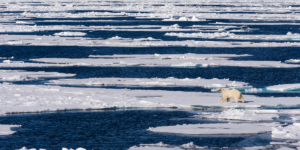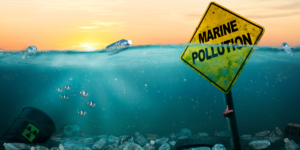You stand at the edge of a vast, shimmering ocean. The waves lap gently at your toes, and as you take in the beauty before you, it’s easy to forget that this ecosystem is under threat.
Climate change has already begun to alter marine ecology in significant ways, with far-reaching consequences for both wildlife and humans. As global temperatures rise, so do ocean temperatures.
This warming trend has serious implications for marine life, from coral reefs to fish stocks. Rising temperatures can lead to coral bleaching events, where corals expel the algae that live within their tissues and provide them with vital nutrients. This not only harms individual corals but can also have a ripple effect throughout entire ecosystems.
Meanwhile, certain species are starting to move towards cooler waters or shift their breeding seasons as the oceans warm around them.
Key Takeaways
- Rising ocean temperatures cause population declines and extinction of marine species, including coral bleaching.
- Ocean acidification caused by increased carbon dioxide absorption devastates marine life, particularly shellfish and coral reefs.
- Rising sea levels threaten human livelihoods and biodiversity, causing property damage, erosion, and loss of infrastructure.
- Changes in ocean currents affect nutrient distribution and migratory patterns of marine animals, resulting in harmful algal blooms and shifts in fish populations.
Rising Ocean Temperatures
The ocean’s getting hotter, and it’s making life harder for our marine friends. Rising ocean temperatures are having a significant impact on the biodiversity of marine ecosystems.
As the temperature rises, many species are struggling to adapt, leading to population declines or even extinction. One of the most visible impacts of rising ocean temperatures is coral bleaching.
Coral reefs are incredibly sensitive to changes in temperature and water chemistry, and when conditions become too extreme, they expel the colorful algae that give them their vibrant colors. Without these algae, corals lose their primary food source and become more vulnerable to disease and other stressors.
This can lead to mass die-offs of entire coral communities, which not only affects the countless species that rely on these habitats but also has a ripple effect throughout the entire food chain.
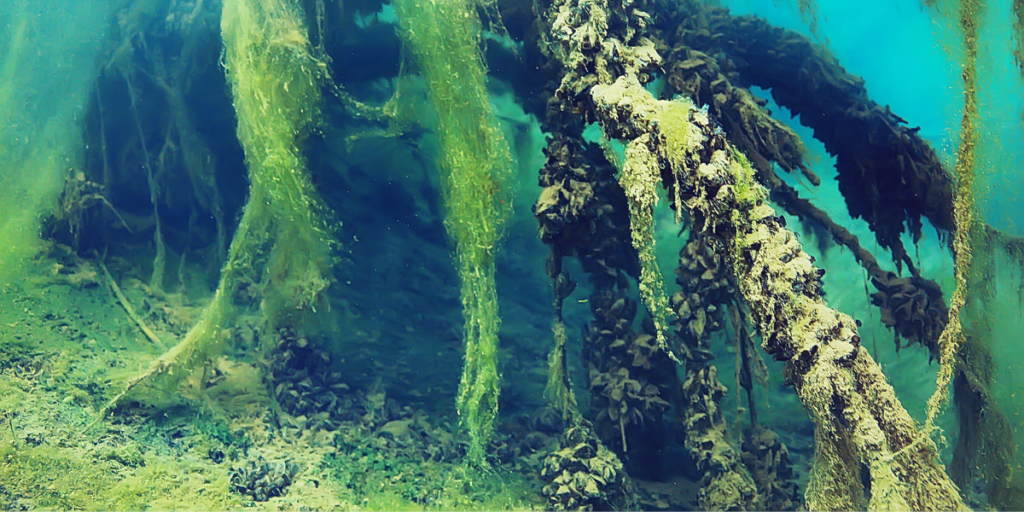
Ocean Acidification
You might feel like a fish out of water if you’re living in the ocean today, with all the extra CO2 making it more acidic than it has been in 20 million years.
The pH level of seawater is decreasing at an alarming rate due to the increased absorption of carbon dioxide from human activities such as burning fossil fuels and deforestation. This phenomenon is known as ocean acidification and its impacts on marine life are devastating.
Shellfish are highly sensitive to changes in ocean chemistry caused by acidity. As ocean waters become more acidic, it becomes harder for shellfish to build their protective shells. This means that they are more vulnerable to predation and disease.
Coral reefs are another ecosystem that suffers under the effects of ocean acidification. The high levels of acidity cause coral bleaching which can lead to reef death and destruction of habitats for fish and other species.
It is essential that we take action now to reduce our carbon footprint and prioritize sustainable practices to prevent further harm to our oceans’ delicate ecosystems.
Rising Sea Levels
Hey, don’t ignore the fact that our oceans are getting higher and will eventually swallow up coastal cities if we don’t take action to reduce our carbon emissions.
Rising sea levels are one of the most evident effects of climate change on marine ecology, and they pose a significant threat to human livelihoods and biodiversity. According to the Intergovernmental Panel on Climate Change (IPCC), sea levels have risen by about 15 cm since the beginning of the 20th century, and they are projected to increase by another 26-82 cm by 2100.
The impact on coastlines is likely to be severe. As sea levels rise, more frequent and intense flooding events will occur, causing property damage, erosion, and loss of infrastructure. In addition, saltwater intrusion into freshwater sources could compromise agricultural productivity and drinking water supplies.
Furthermore, rising sea levels will lead to displacement of marine species from their habitats as well as changes in ocean currents that can affect migratory patterns. It’s clear that immediate action is required if we want to mitigate these impacts on both human society and marine ecosystems alike.
Changes in Ocean Currents
Nowadays, the issue of ocean currents altering due to human activities is becoming more prominent. Ocean circulation patterns are largely driven by temperature and salinity differences in seawater. However, as global temperatures continue to rise and melting ice from glaciers and ice caps flows into the oceans, sea surface salinity levels are decreasing. This can lead to disruptions in thermohaline circulation (the movement of warm water towards the poles and colder water towards the equator), which can have significant impacts on marine ecology.
Changes in ocean currents can affect everything from nutrient distribution to migration patterns for marine animals. For example, if warm water no longer flows towards the poles as it once did, Arctic sea ice could melt faster than expected, causing major disruptions in food webs that rely on this ice for survival.
Additionally, changes in ocean currents could result in more frequent occurrences of harmful algal blooms or shifts in fish populations that could have serious consequences for human communities that rely on fishing as a primary source of income or food security. As such, it’s critical that we begin taking steps to mitigate these impacts before they become irreversible.
Mitigating the Impact of Climate Change on Marine Ecology
To mitigate the impact of climate change on marine ecology, you must focus on reducing carbon emissions. This means taking steps to decrease the amount of greenhouse gases being emitted into the atmosphere.
Conservation efforts are also vital in protecting marine ecosystems from further damage caused by human activity, such as overfishing and pollution.
Additionally, implementing policies that promote sustainability and protect vulnerable species can help ensure a brighter future for our oceans.
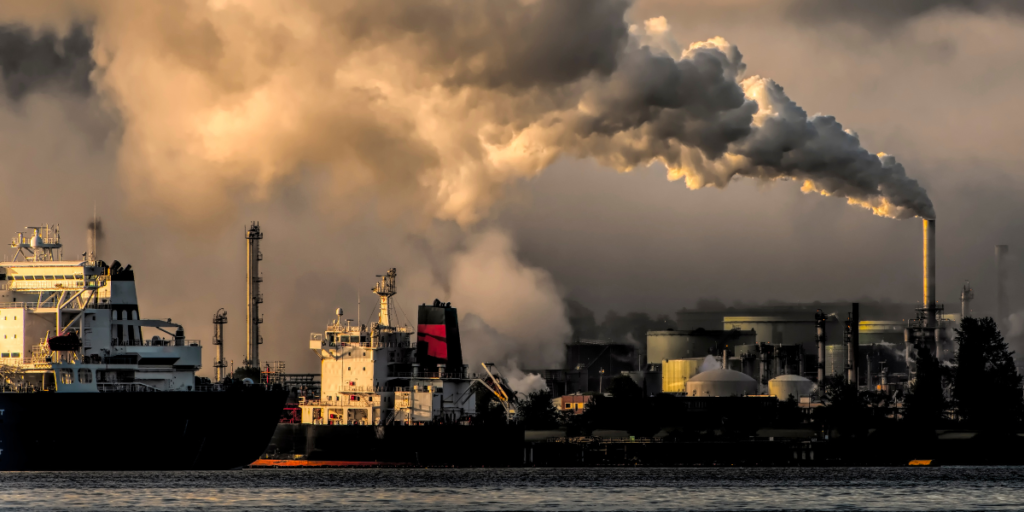
Reducing Carbon Emissions
You can significantly reduce carbon emissions by making small changes in your daily routine, such as using public transportation or biking instead of driving. Carbon reduction strategies are essential to mitigate the impact of climate change on marine ecology.
The burning of fossil fuels is a significant contributor to greenhouse gas emissions, which lead to ocean acidification and warming. Renewable energy solutions, such as solar power and wind turbines, can also help reduce carbon emissions.
Investing in these technologies won’t just benefit the environment, but will create jobs and stimulate economic growth. Governments and businesses must prioritize renewable energy solutions to reduce carbon emissions and prevent further damage to marine ecosystems.
By taking action today, we can ensure that future generations will have access to healthy oceans teeming with life.
Conservation Efforts and Policies
If you’re interested in preserving the health and abundance of ocean life, it’s important to support conservation efforts and policies that aim to protect marine habitats and species.
One such effort is the establishment of protected areas or marine reserves where human activity is limited or prohibited altogether. These areas provide a safe haven for marine biodiversity to thrive without disturbance. Studies have shown that protected areas increase fish biomass, biodiversity, and size of individual fish.
This means that these areas can serve as important sources for replenishing nearby fishing grounds.
Another way to support marine conservation efforts is by promoting sustainable fishing practices. Unsustainable fishing practices such as overfishing, bottom trawling, and bycatch are major threats to the health of our oceans.
Sustainable fishing practices ensure that fish stocks are maintained at healthy levels while minimizing negative impacts on the environment. This includes using gear that reduces bycatch, choosing seafood from well-managed fisheries, and supporting local fishermen who use sustainable methods.
By adopting sustainable fishing practices, we can help protect our oceans for generations to come.
Conclusion
You’ve learned about the effects of climate change on marine ecology. Rising ocean temperatures, caused by global warming, can lead to coral bleaching and affect the distribution of marine species. Ocean acidification, a result of carbon dioxide emissions, can cause harmful algal blooms and disrupt the food chain. Rising sea levels can impact coastal habitats and communities.
Changes in ocean currents due to climate change can also have far-reaching consequences for marine ecosystems. Species that rely on specific water temperatures or nutrient levels may struggle to adapt. However, there are ways to mitigate the impact of climate change on marine ecology through reducing greenhouse gas emissions and implementing conservation efforts.
It’s crucial to take action now to protect our oceans and the diverse life they support before it’s too late.
We would like to thank our sponsor Rapid Fix Garage Doors for supporting our website and if you need a quality garage door service contact them today.

